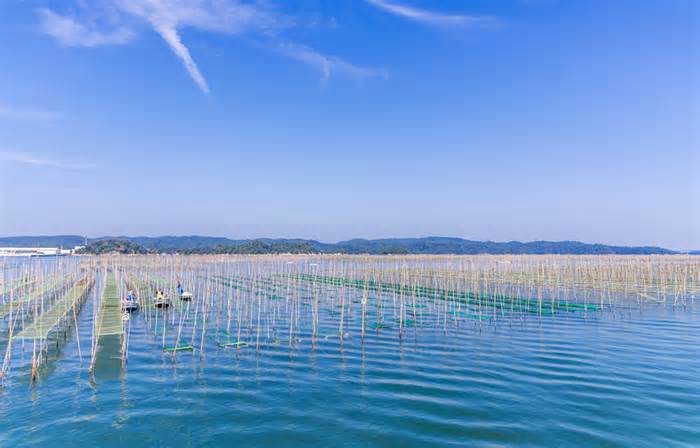
Research
Share
An update to Japan’s national fisheries law has granted corporations access to aquaculture sites in some cases, raising concerns among members of local fishing cooperatives, who fear that such giant corporations will take over sites that were previously reserved for them and reduce their prestige as mere workers as owner-operators.
The “Partial Revision of the Fisheries Law” was passed in December 2018 and came into force a year later with the original aim of injecting capital into the industry while also allowing new entrants to the sector’s aging workforce.
However, the change also introduced tight rules on who could join fishery cooperatives and has now allowed authorities, such as prefectural governors, to determine whether an aquaculture site is being used in an “appropriate and effective” manner. If these authorities deem a site is mismanaged, its use can be granted to a corporation or individual rather than a cooperative.
The vague definition of “appropriate and effective” has led to unease among the nation’s cooperative members.
To address the considerations of local cooperative leaders, Hideaki Yamaguchi, director general of the Japan Fisheries Agency, organized an online exchange of views with the National Fisheries Youth Federation.
“I would like to make it possible for young fishermen who are working hard to share and use vacant fish-farming grounds,” Masahiko Hirako, who is a member of the federation and a scallop and sea squirt farmer in Japan’s northern Iwate Prefecture, said during the meeting, epitomizing the concerns of the federation.
In an effort to explain the new rules, the Fisheries Agency has published a report and some case examples outlining the specific situations in which a cooperative can lose out to a site.
Reasons for an authority to transfer access to a company arise when a site interferes with the activities of other fishers, causes deterioration of the marine environment, or leaves part of an assigned domain unused without just cause. The latter case could involve cooperating in Squatting rights over a domain in order to preserve it for long-term use or to save others from it.
Another case in which the government can reallocate rights to a site is when some other use has a greater chance of increasing production and contributing more to the progress of the local fishing industry, for example by ensuring more employment opportunities.
However, if a rights holder who “adequately and efficiently” owns the aquaculture land involved applies for the renewal of a right that is expiring, this deserves to be granted – in principle.
So far, however, most of the cases where companies have been granted aquaculture rights have occurred when an existing operator has gone bankrupt. In such cases, the government attacks a site under the responsibility of a company and regularly provides monetary stability to the failed operation, while preserving the jobs of those who paint there.
Although it offers greater promises of monetary security and employment, this procedure continues to arouse mistrust among cooperators.
The government said it plans to locate an intermediate floor where it will connect new entrants to the sector with open aquaculture spaces and conduct a survey through cooperative collaboration to identify long-term plans for fishing spaces.
For personal corporations to access the space, interactions with fishing cooperatives have been key to accelerating the process, specifically around local coordination and the use of services such as docks. Other situations that facilitated access were the employment of local citizens and general interactions with local citizens and the network in general.
However, many companies complain that the point of contact for negotiations with the cooperatives is unclear, as the cooperatives regularly expect cash from the cooperation of new entrants, the amounts of which are opaque.
Despite the local and national policies at stake, prefectures that actively welcome investment and where local fishing cooperative leaders temporarily reacted were the best odds of attracting new entrants and temporarily starting to operate an available aquaculture site.
Become a Premium Member for the rest of this article.
Become a member ›Already a member? Login >
Chris Loew reports from Osaka, Japan, as editor-in-chief of SeafoodSource. com. In addition to writing for SeafoodSource. com, he covers Japan for equity by doing a Global Investing investment newsletter. He is the co-author of an educational text titled “English for Healthcare: Read It, Write It, and Talk It. “When he’s not writing, he proofreads translations from Japanese to English. Chris is a 1990 graduate of Evergreen State College in Olympia, Washington. After graduating, he worked for two years in the purchasing branch of a Japanese meat importer and for five years as an export manager for two Seattle food companies, promoting to consumers in the Far East and arranging shipping and export documents for combined boxes of frozen foods.
[email protected]
EXPLORE ALL RESOURCES ›
Become a member
Access the most trusted fishing industry news resource by becoming a Premium Member!
